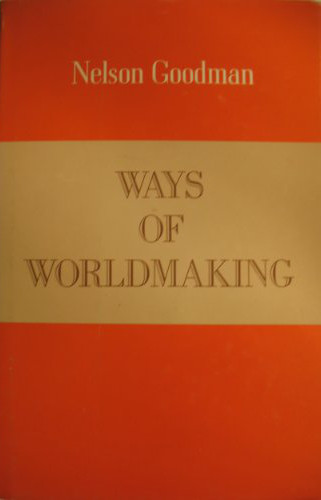Nikolaus Gansterer (ed.): Drawing A Hypothesis: Figures of Thought (2011)
Filed under book | Tags: · abstraction, art, contemporary art, data visualisation, diagram, drawing, image, knowledge, perception, representation, research, science, theory

“Drawing a Hypothesis is a reader on the ontology of forms of visualizations and on the development of the diagrammatic view and its use in contemporary art, science and theory. In a process of exchange with artists and scientists, Nikolaus Gansterer reveals drawing as a media of research enabling the emergence of new narratives and ideas by tracing the speculative potential of diagrams. Based on a discursive analysis of found figures with the artists’ own diagrammatic maps and models, the invited authors create unique correlations between thinking and drawing. Due to its ability to mediate between perception and reflection, drawing proves to be one of the most basic instruments of scientific and artistic practice, and plays an essential role in the production and communication of knowledge. The book is a rich compendium of figures of thought, which moves from scientific representation through artistic interpretation and vice versa.”
Translation: Veronica Buckley, Aileen Derieg
Publisher Springer, 2011
Edition Angewandte
ISBN 3709108020, 9783709108024
352 pages
Review: Mark Robert Doyle, Gert Hasenhuetl (in German).
PDF (updated on 2021-12-17)
Comments (4)Isabelle Stengers: The Invention of Modern Science (1993–) [EN, PT]
Filed under book | Tags: · apparatus, epistemology, event, fact, fiction, history of science, mathematics, philosophy of science, physics, politics, science, sociology, theory, truth

The so-called exact sciences have always claimed to be different from other forms of knowledge. How are we to evaluate this assertion? Should we try to identify the criteria that seem to justify it? Or, following the new model of the social study of the sciences, should we view it as a simple belief? The Invention of Modern Science proposes a fruitful way of going beyond these apparently irreconcilable positions, that science is either “objective” or “socially constructed.” Instead, suggests Isabelle Stengers, one of the most important and influential philosophers of science in Europe, we might understand the tension between scientific objectivity and belief as a necessary part of science, central to the practices invented and reinvented by scientists.
First published in French as L’Invention des sciences modernes, La Découverte, Paris, 1993.
English edition
Translated by Daniel W. Smith
Publisher University of Minnesota Press, 2000
Theory Out of Bounds series, 19
ISBN 0816630569, 9780816630561
185 pages
Review (Robert Evans, Contemporary Sociology, 2002)
Commentary (Stephen Shaviro, 2004)
Publisher (EN)
Google books (EN)
The Invention of Modern Science (English, trans. Daniel W. Smith, 2000)
A invenção das ciências modernas (Portuguese, trans. Max Altman, 2002)
Nelson Goodman: Ways of Worldmaking (1978–) [EN, DE, ES, CZ, CR]
Filed under book | Tags: · aesthetics, art, art theory, epistemology, knowledge, metaphysics, perception, philosophy, representation, science, style, truth

“A major thesis of this book is that the arts must be taken no less seriously than the sciences as modes of discovery, creation, and enlargement of knowledge in the broad sense of advancement of the understanding, and thus that the philosophy of art should be conceived as an integral part of metaphysics and epistemology.” (p 102)
Publisher Hackett Publishing, Indianapolis, 1978
ISBN 0915144514, 9780915144518
148 pages
Reviews: Hilary Putnam (Journal of Philosophy, 1979), W. Charlton (Philosophical Quarterly, 1980), Robert Howell (Philosophical Review, 1982), Jay F. Rosenberg (Noûs, 1982), Jon W. Sharer (Leonardo, 1981).
Commentaries: Xavier de Donato-Rodríguez (Theoria, 2009), Pierre-André Huglo (Philopsis, 2012, FR).
Preface to an Italian edition (Achille C. Varzi, 2008, IT)
Commentary on Goodman’s aesthetics (Stanford Encyclopedia of Philosophy).
Ways of Worldmaking (English, 1978; HTML).
Ways of Worldmaking (English, UK edition by Harvester Press, 1978)
Weisen der Welterzeugung (German, trans. Max Looser, 4th ed., 1984/1998, added on 2014-10-28)
Maneras de hacer mundos (Spanish, trans. Carlos Thiebaut, 1990, no OCR)
Způsoby světatvorby (Czech, trans. Vlastimil Zuska, 1996, first 4 chapters, HTML)
Načini svjetotvorstva (Croatian, trans. Damjan Lalović, 2008)

